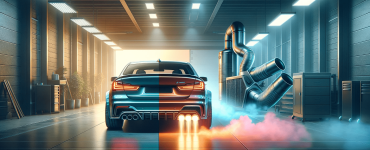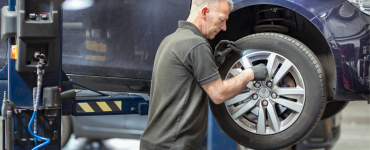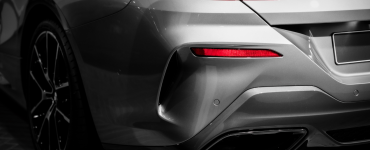Brake System Tuning for Peak Performance
Key Takeaways for Brake System Tuning
| Essential Point | Quick Fact |
|---|---|
| Optimal Braking | Properly tuned brakes provide superior stopping power and control. |
| Component Upgrades | High-quality pads, rotors, and fluid can drastically improve braking. |
| System Maintenance | Regular maintenance ensures consistent brake performance. |
| Professional Tuning | Experienced technicians can optimize the entire braking system. |
| Brand Relevance | Stick to reputable brands for reliability and performance. |
Brakes are the unsung heroes of automotive performance. They don’t just stop your car; they allow you to go faster, with the confidence that you can slow down effectively when needed. Whether you’re hustling a Dodge down the strip, carving corners in a Chevrolet, or tackling terrain in a Jeep, the right brake setup is crucial. Let’s find out more about Brake System Tuning!
The Breakdown on Brake Upgrades

When you press that brake pedal, a symphony of parts works in harmony to bring your metal masterpiece to a halt. Upgrading your brake system isn’t just about slapping on some new pads and calling it a day. Here’s the rundown:
- Pads and Rotors: These are the front-line warriors of your braking system. Performance pads and slotted or drilled rotors can dissipate heat faster, offering better stopping power and less fade.
- Brake Fluid: It’s the lifeblood of the braking system. High-performance fluid with a higher boiling point can handle the heat of spirited driving without breaking a sweat.
- Brake Lines: Stainless steel braided lines don’t expand under pressure like rubber ones. This means a firmer pedal and more precise control.
- Calipers: Bigger isn’t always better, but more pistons can mean a more even distribution of force, improving pad wear and performance.
Upgrading Step-by-Step
- Consult a Professional: Always start with expert advice, especially when it comes to safety.
- Choose Quality Parts: Opt for brands with a solid track record. Whether it’s a Ford or a Honda, they deserve the best.
- Regular Check-Ups: Like any high-performance system, keep a close eye on wear and tear.
- Bed-In Your Brakes: New pads and rotors need to be properly bedded in to perform at their peak.
- Test Your Upgrades: Always test in a safe environment before hitting the roads or track.
Maintenance is Key
| Maintenance Task | Benefit |
|---|---|
| Regularly changing brake fluid | Prevents moisture buildup and corrosion. |
| Inspecting pads and rotors | Ensures optimal thickness and surface condition. |
| Checking brake lines and hoses | Identifies potential leaks or weaknesses. |
| Testing brake response | Assures consistent performance in different conditions. |
Brake System Tuning: The Brand Matters
Not all parts are created equal. Trustworthy brands for each component of your braking system are vital. For instance, a Jeep might benefit greatly from a set of Brembo or Wilwood calipers, especially if it’s being used for off-roading where control is just as important as power.
When to Call in the Pros
Sometimes, the DIY route isn’t the best one. Complex systems, like those in a turbocharged ride, might require a professional touch. Consulting with a pro can save you time and money in the long run, ensuring your brakes are tuned perfectly for your vehicle’s needs.
Getting the Most from Your Tuning
Every car has its quirks, and understanding yours is the key to unlocking its potential. Tuning isn’t just about power; it’s about balance. Remember, better brakes can lead to better lap times. Dive into the world of tuning for racing performance to see how brake tuning fits into the bigger picture of car performance.
Conclusion on Brake System Tuning
Brake tuning is as much an art as it is a science. Whether you’re eyeing the start line or the horizon, never underestimate the power of a well-tuned brake system. It could mean the difference between a good drive and a great one. For more information on getting started, check out our beginner’s tuning guide.
Remember, your vehicle’s performance is only as good as its weakest link. Don’t let that be your brakes.




